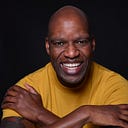Member-only story
Why Does America Worship Awful White Men?
Next up: Tom Hanks as a Confederate “hero” in News of the World.
America needs its heroes, and Americans often look for and find them in all the wrong places. Andrew Jackson, Jesse James, Henry Ford, Charles Lindbergh, John Wayne, and Robert E. Lee — the Confederate general who led the Southern troops fighting against the Union during the Civil War — come immediately and frustratingly to mind. All were awful White men who, at various times in history, have been exalted to the status of iconic American hero.
The movie News of the World, a vehicle for Tom Hanks and a follow-up collaboration between him and his Captain Phillips director Paul Greengrass, asks us — no, practically begs us — to give Hanks’s Captain Jefferson Kyle Kidd the Robert E. Lee treatment.
To set the historical context, an early scene has Captain Kidd stumbling upon the body of a Black man dangling from a tree with a sign that reads TEXAS SAYS NO! THIS IS WHITE MAN’S COUNTRY hanging around his neck. The action that follows unfolds in the Lone Star State five years after the Civil War, yet grim lynching visual aside, News of the World mostly sidesteps racial issues and the racist mood that pervaded the Deep South circa 1870. It uses White America’s 19th century trouble with Native Americans — who like the few…
